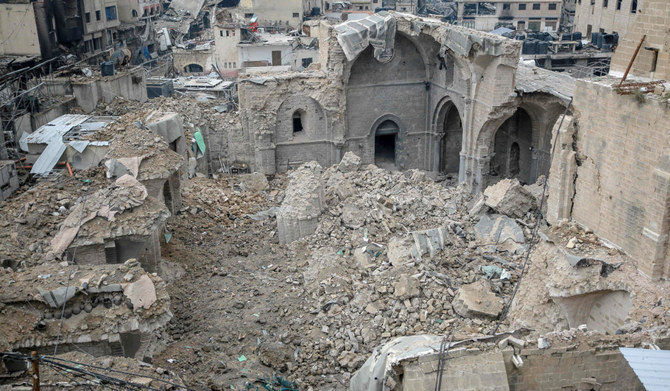
Oil-rich Libya is split between rival governments, each backed by an array of foreign countries apparently jockeying for influence in order to control Libya’s resources
Libya has the ninth largest known oil reserves in the world and the biggest oil reserves in Africa
GENEVA: Libya’s warring sides resumed Tuesday UN-brokered talks aimed at salvaging a fragile cease-fire in the North African country, the UN said in Geneva.
The current cease-fire was brokered by Russia and Turkey on Jan. 12. It marked the first break in months of fighting for control of the Libyan capital, Tripoli. But both sides have repeatedly violated the cease-fire.
Oil-rich Libya is split between rival governments, each backed by an array of foreign countries apparently jockeying for influence in order to control Libya’s resources.
A UN-supported but weak administration, led by Prime Minister Fayez Sarraj, holds only a shrinking area of western Libya, including the capital. It’s been fending off an offensive since last April by forces loyal to Gen. Khalifa Haftar. The military commander is allied with a rival government that controls much of Libya’s east and south, including key oil fields and export terminals.
OPINION
The UN support mission in Libya said five military representatives from each side have met Tuesday in Geneva, more than a week after they ended their first round of negotiations without striking a deal that would help end the fighting in Tripoli.
In the previous round of talks, the UN mission said there was “broad consensus” between the two sides on “the urgency for Libyans to safeguard the sovereignty and territorial integrity” of the country, and to “stop the flow of non-Libyan fighters and send them out of the country.”
Haftar’s forces rely on military assistance from the United Arab Emirates and Egypt, as well as France and Russia. On the other side, Turkey, Italy and Qatar support the embattled Tripoli-based government.
Powerful tribes loyal to the eastern the commander Haftar have also largely stopped the country’s oil production, after they seized last month several large oil export terminals along Libya’s eastern coast as well as its southern oil fields.
The country’s National Oil Corporation, which dominates Libya’s critical oil industry and is based in Tripoli, said losses from the oil closures have reached more than $1.6 billion as of Monday.
The daily oil production has since the closure fallen to 135,745 barrels a day from about 1.2 million. It put the daily losses at close to $59 million.
Libya has the ninth largest known oil reserves in the world and the biggest oil reserves in Africa.
The corporation reiterated its warning that the blockade is quickly depleting fuel that supplies Libyan power stations.
The Geneva talks come amid intensified diplomacy among world powers seeking to end the conflict that has ravaged Libya for nine years and increasingly drawn in foreign powers.
European Union foreign ministers agreed Monday to launch a new maritime effort focused on enforcing the UN arms embargo around the North African country.
Libya has been in turmoil since 2011, when a civil war toppled long-time dictator Muammar Qaddafi, who was later killed.












